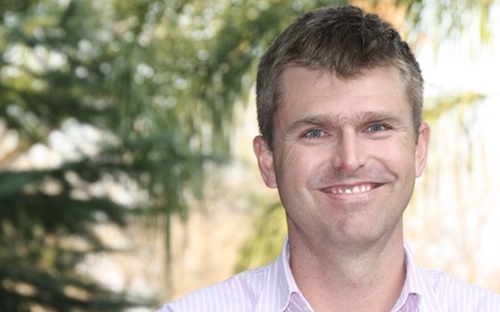
MultiChoice wants to use its DStv Mobile platform to extend television services into markets where people don’t subscribe to or can’t afford traditional pay-TV services.
DStv Mobile, which uses the digital video broadcasting handheld standard to deliver a bouquet of television channels to mobile devices, including cellphones, was launched in December after years of regulatory and licensing delays.
Though MultiChoice isn’t disclosing how many subscribers have signed up to the service, Mark Rayner, GM of DStv Mobile in SA, says sales are “in line with expectations”. He says the company wants to push DStv Mobile not only into homes that already subscribe to pay-TV services, but also into the mass market of consumers who don’t have access to pay TV.
“Where we get excited is serving the markets that don’t necessarily have DStv at home,” says Rayner. However, there are no immediate plans to extend DStv Mobile’s broadcast towers into rural areas. For now, coverage is confined to the big urban centres, namely Gauteng, Durban, Cape Town, Bloemfontein, Polokwane, Mbombela (Nelspruit), Rustenburg and Port Elizabeth.
To help it reach the mass market, MultiChoice has introduced a R9/week subscription option, in addition to the R36/month option introduced at launch. Operator billing is also available, so consumers can use airtime, including prepaid airtime, to watch TV on their phones.
Rayner says the company is aware that in the lower end of the market it is competing for spend with airtime and other basic necessities, so the product has to be priced affordably.
Consumers who already subscribe to DStv’s Premium bouquet — its most expensive direct-to-home satellite offering — get DStv Mobile free as a “value add”.
Rayner says the biggest impediment to adoption of mobile TV is a lack of devices that support the broadcasts. So far, only a handful of phones — many of them made by Nokia — support the standard.
It’s tried to overcome this by selling the Drifta, a portable mobile decoder that broadcasts a TV signal to a supported mobile device or PC using Wi-Fi. So far, though, only iPhones and iPads as well as Windows PCs are supported, but Rayner says an Android version should be available soon. Symbian Series 60 will follow later, with a Windows Phone 7 product also a possibility.
According to MultiChoice’s research, DStv Mobile subscribers use the service mainly to watch live sport and news. It has seen a spike in viewership around big current affairs events, including the recent royal wedding and the earthquake and tsunami in Japan.
Rayner says he expects a jump in viewership during the Rugby World Cup, especially given that many of the games will be played in the mornings, when most people are at work.
The DStv Mobile bouquet has 12 channels, with a capacity to broadcast 15. A dedicated Idols channel will be launched soon, Rayner says. Channels included in the paid-for bouquet are SuperSport 1,2 and 3, Sony Max, Africa Magic, Trace, Cartoon Network and Big Brother Africa. Free channels, offered by e.tv in partnership with MultiChoice, are the e-News Channel, E-Entertainment, Channel O, CNN and SuperSport Blitz.
Already, the company has launched DStv Mobile in five African markets. The other four are Ghana, Nigeria, Namibia and Kenya. Nigeria has enjoyed the strongest uptake to date. — Duncan McLeod, TechCentral
- Subscribe to our free daily newsletter
- Follow us on Twitter or on Facebook

